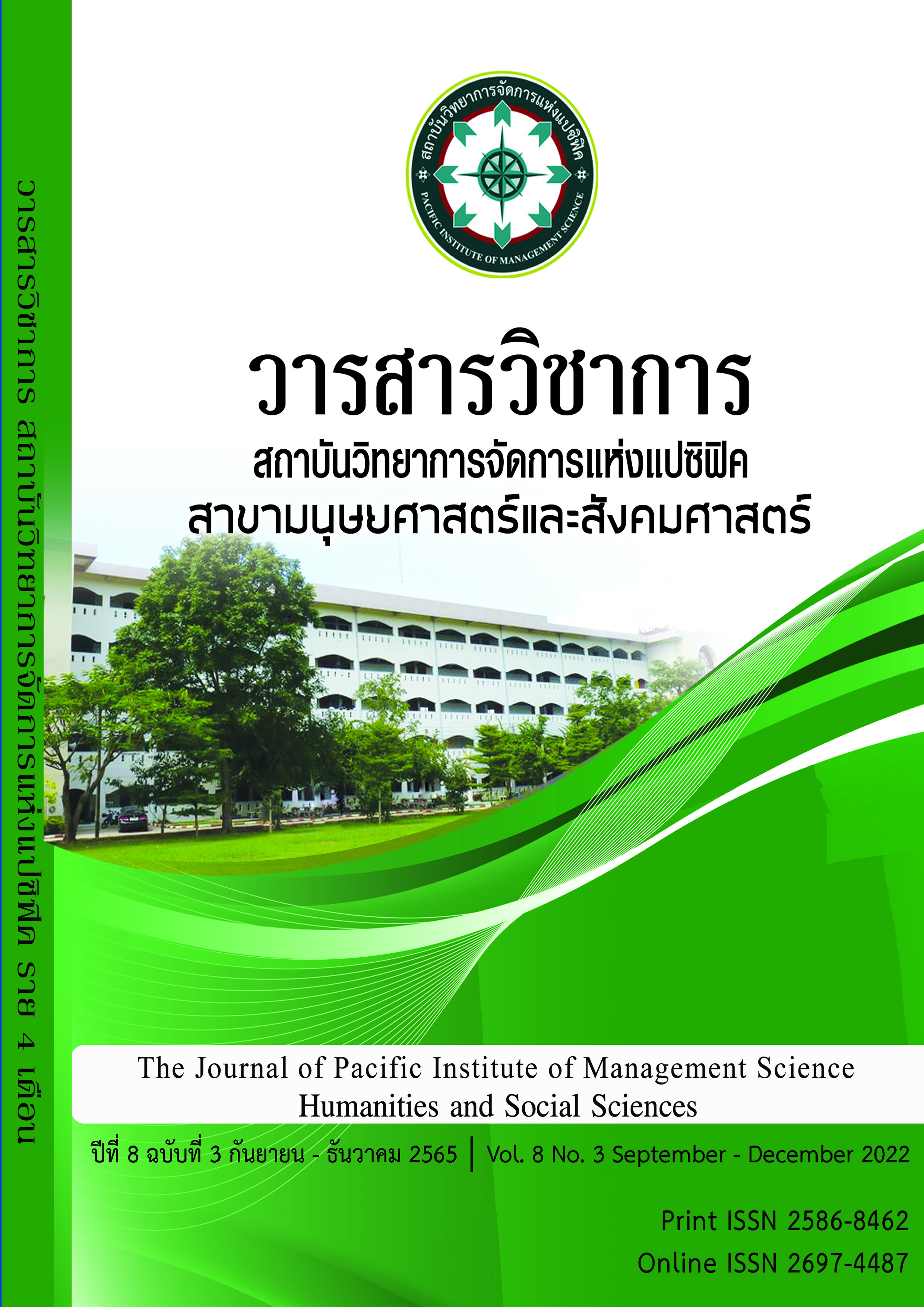Model of Development of Learning Ability of Students with Intellectual Disabilities to the 21st Century, Suphanburi Panyanukul School Suphanburi Province
Keywords:
Model, Learning Ability, Mental RetardationAbstract
The objectives of this research were to develop the model for development of learning ability of students with Intellectual disabilities to the 21st Century, Suphanburi Panyanukul School Suphanburi Province. This research methodology has two phase consists 1) develop the model of Development of Learning Ability of Students with Intellectual Disabilities to the 21st Century, Suphanburi Panyanukul School Suphanburi Province 2) determined the effects of using the model, group who provide information included consisted of 80 deputy directors and teachers and 9 experts. The instrument used in the research were draft record forms, questionnaire for evaluated the model, questionnaire for operation according to the model and assess the learning ability of the learners. The data were analyzed by using content analysis, mean, and standard deviation.
The results were found that the model of Development of Learning Ability of Students with Intellectual Disabilities to the 21st Century, Suphanburi Panyanukul School Suphanburi Province have 3 configurations first configuration included the prologue: objectives, conceptual of theory second configuration included the process by using PDCA Deming cycle and third configuration included the factor of success: School administration, teacher, and community. The results of evaluate model found that the overall, at the highest level. It was found that the opinions towards the implementation of the model found that the overall, at the highest level and the result of evaluate ability of students the overall, at the highest level.
Suggestion Schools in the network to promote school efficiency specifically with intellectual disabilities should promote a model to apply.
References
กุลยา ก่อสุวรรณ. (2553). ภาวะบกพร่องทางสติปัญญา. กรุงเทพฯ: มหาวิทยาลัยศรีนครินทรวิโรฒ.
ชนิกานต์ เธียรสูตร. (2560). วงจร PDCA. ออนไลน์. สืบค้นเมื่อ 5 พฤษภาคม 2560. จากhttp://eduserv.ku.ac.th/km/index.php?option=comcontent&task-view&id=137&Itemid=68.
ชาญชัย วงศ์สิรสวัสดิ์. (2564). รูปแบบการบริหารเครือข่ายความร่วมมือการส่งเสริมความประพฤตินักเรียนของสถานศึกษา สังกัดสำนักงานคณะกรรมการการศึกษาขั้นพื้นฐาน. วารสารครุศาสตร์อุตสาหกรรม สจล. ปีที่ 20 ฉบับที่ 3 (กันยายน – ธันวาคม 2564). หน้า 11-23.
ดรุณี ไชยวงค์. (2554). การรับรู้และความคาดหวังของชุมชนต่อการจัดการศึกษาของโรงเรียนบ้านทุ่งหลุก อำเภอฝาง จังหวัดเชียงใหม่. วิทยานิพนธ์ ศึกษาศาสตรมหาบัณฑิต.(จิตวิทยาการศึกษาและการแนะแนว). เชียงใหม่: มหาวิทยาลัยเชียงใหม่.
ทินกร บัวชู. (2564). รูปแบบการพัฒนาสมรรถนะเพื่อเพิ่มขีดความสามารถทางการแข่งขันในศตวรรษที่ 21ของอาจารย์พยาบาลสังกัดมหาวิทยาลัยราชภัฏ. ดุษฎีบัณฑิต สาขาการบริหารการศึกษา คณะศึกษาศาสตร์ มหาวิทยาลัยศรีนครทรวิโรฒ.
บุญชม ศรีสะอาด. (2560). การวิจัยเบื้องต้น. พิมพ์ครั้งที่ 10. กรุงเทพฯ: สุวีริยาสาส์น.
ราชกิจจานุเบกษา. (2551). พระราชบัญญัติการจัดการศึกษาสำหรับคนพิการ 2551. กรุงเทพฯ: โรงพิมพ์อักษรไทย.
วาโร เพ็งสวัสดิ์. (2553). การวิจัยพัฒนารูปแบบ. วารสารมหาวิทยาลัยราชภัฏสกลนคร, 2(4), 1-15.
วิภาวี ศิริลักษณ์. (2557). การพัฒนาตัวบ่งชี้ทักษะของนักเรียนในศตวรรษที่21. วิทยานิพนธ์ปริญญาการศึกษามหาบัณฑิต (วิจัยและประเมินผลการศึกษา). บัณฑิตวิทยาลัยมหาวิทยาลัยนเรศวร.
Cronbach, L. J. (1990). Essentials of Psychological Testing. 5th ed. New York : Harper Collins.
Stufflebeam, D. L. (1999). Program Evaluations meta-evaluation checklist (based on the program evaluation standards). Retrieved from http://www.wmich.edu/evalctr/checklists/program_metaeval.htm
Downloads
Published
Issue
Section
License
Copyright (c) 2022 Pacific Institute of Management Science

This work is licensed under a Creative Commons Attribution-NonCommercial-NoDerivatives 4.0 International License.
บทความที่ได้รับการตีพิมพ์เป็นลิขสิทธิ์ของ สถาบันวิทยาการจัดการแห่งแปซิฟิค
ข้อความที่ปรากฏในบทความแต่ละเรื่องในวารสารวิชาการเล่มนี้เป็นความคิดเห็นส่วนตัวของผู้เขียนแต่ละท่านไม่เกี่ยวข้องกับสถาบันวิทยาการจัดการแห่งแปซิฟิค และคณาจารย์ท่านอื่นๆในสถาบันฯ แต่อย่างใด ความรับผิดชอบองค์ประกอบทั้งหมดของบทความแต่ละเรื่องเป็นของผู้เขียนแต่ละท่าน หากมีความผิดพลาดใดๆ ผู้เขียนแต่ละท่านจะรับผิดชอบบทความของตนเองแต่ผู้เดียว







